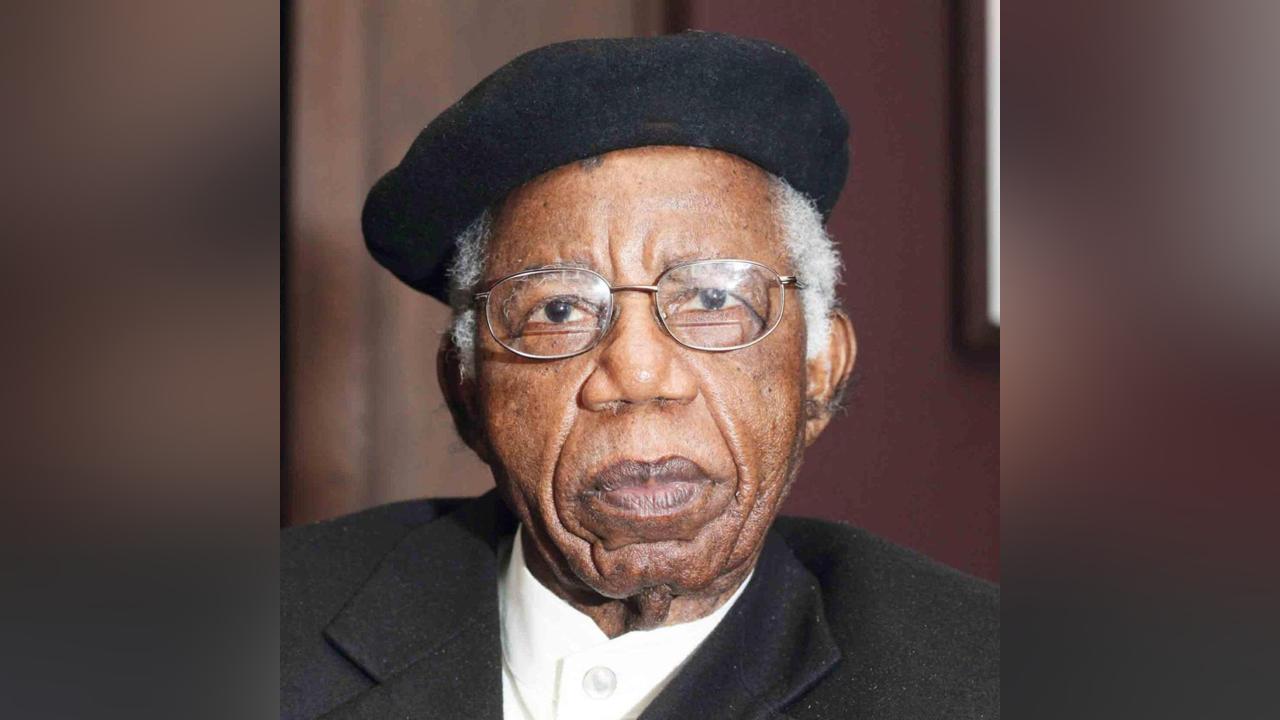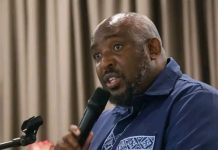Africa-Press – Lesotho. As soon as you mention the title Things Fall Apart, the first thing you may recall is the man, Okonkwo. This happens a lot with works of literature. The enduring presence of a novel’s main character may stay with you all your life.
They say that a book is its main character. The main character is the central character of the story, the one that the reader follows through the story or account.
The main character is usually involved in the problems of the tale, the climax, and its resolution. What the main character does and says makes or unmakes the story.
I often catch myself waking up in the middle of the night to read the passages called ‘Guitar’ that one finds in Langston Hughes’ novel, Not Without Laughter because I appreciate the character Jimboy.
In those sections of the novel, Jimboy uses his guitar to sooth the post-slave souls of the people around him, making them accept both the sorrows and joys of life.
Such characters as Jimboy represent forms of genuine genius found in artist characters who are generally a “type” full of philosophic – prophetic vision and thus evoking nostalgic yearnings.
In that novel, the author’s task is to replicate the nostalgia and hope his characters feel as they set out for new futures in foreign lands, or the fear, resentment and loneliness of those left behind at home.
Jimboy, the novel’s most frequent migrant, sings a song that encapsulates both sides of the experience: He begins: “I got a mule to ride. I got a mule to ride.
Down in the South somewhere. I got a mule to ride. ” His sister-in-law, Harriet, responds: “O, don’t you leave me here. Babe, don’t you leave me here. Dog-gone yo’ comin’ back! Said don’t you leave me here. ”
The first time I read Achebe’s first paragraph about Okonkwo, I knew that I would not put the book down: “Okonkwo was well known throughout the nine villages and even beyond.
His fame rested on solid personal achievements. As a young man of eighteen he had brought honor to his village by throwing Amalinze the Cat. Amalinze was the great wrestler who for seven years was unbeaten, from Umuofia to Mbaino.
He was called the Cat because his back would never touch the earth. It was this man that Okonkwo threw in a fight which the old men agreed was one of the fiercest since the founder of their town engaged a spirit of the wild for seven days and seven nights.
” Suddenly I wanted to read on, to know about this extraordinary man who is known in nine big villages and even beyond.
As the story proceeds, you notice that Okonkwo is a wealthy and respected warrior of the Umuofia clan, a lower Nigerian tribe that is part of a consortium of nine connected villages.
It is said that Okonkwo is haunted by the actions of Unoka, his cowardly and spendthrift father, who died in disrepute, leaving behind many village debts unsettled.
In response, Okonkwo becomes a father, clansman, warrior, farmer, and family provider extraordinaire. Okonkwo also has one outstanding weakness; a fear of weakness and failure, which stemmed from his father.
This leads Okonkwo to the horrid and unmerited treatment he gives to those around him and eventually prompts his downfall. The fear of being anything like his father has been within Okonkwo since he was a young child.
Okonkwo is such a hard man that he once says: “Let us not reason like cowards. If a man comes into my hut and defecates on the floor, what do I do? Do I shut my eyes? No! I take a stick and break his head.
That is what a man does. ” Subsequently, he takes action and fights the white men on his own and his people do not join him. That brings his fall because he goes away to hang himself.
Things Fall Apart, by Chinua Achebe, was published in 1958. It is the first of three novels in Achebe’s critically acclaimed African Trilogy. It is a classic narrative about Africa’s cataclysmic encounter with Europe as it establishes a colonial presence on the continent.
I cannot think about Allan Paton’s Cry the Beloved Country without recalling Reverend Khumalo. Stephen Khumalo is the main character and almost the moral centre of Cry the Beloved Country.
He is a quiet, humble man, with a strong faith in God and a clear sense of right and wrong. An Anglican priest, Khumalo cares for his parishioners and presides over the modest church of the village he calls home.
His dignity is outstanding even in front of the oppression against black people in the white dominated South Africa. Once he says, “I have learned that it is a secret.
Pain and suffering, they are a secret. Kindness and love, they are a secret. But I have learned that kindness and love can pay for pain and suffering…”
Stephen Khumalo is too moral to fit into the city at a time when the way to behave is to go to the city. He is too humble as compared to his brother, John.
He observes and feels deeply and responds with love. Alan Stewart Paton was born in Pietermaritzburg in KwaZulu-Natal on 11 January 1903. Paton began writing his first, and arguably most famous, novel, Cry, the Beloved Country, in 1946.
It was published in 1948 and was considered alternatively as revolutionary or sentimental by many white South Africans. The book became a massive success and by 1988 had sold more than 15 million copies internationally.
It has also spurred two films, one made in 1951 and another in 1995, and has been credited with stimulating awareness of apartheid abroad. One very fascinating character from African literature is Bakayoko from Sembene Ousmane’s God’s Bits of Wood.
He is a locomotive engineer and a capable unionist. The novel describes the epic strike of 1947-48, in which workers on the railroad line from Dakar in Senegal to Bamako on the Niger River walked off the job, demanding higher wages, pensions, family allowances, and the recognition of their union.
We know that the setting of this novel is in a colonial context but the author does not dwell on colonialism, racism and oppression. The Niger railway strike of 1947 was part of the continental trend of industrial action.
It was organised against capital. The strike is a manifestation of the presence of a class consciousness among workers. God’s Bits of Wood begins in Bamako, in what is now Mali, with the family of Bakayoko, the leader of the strike, who has disappeared some time before.
Though unsure of themselves without Bakayoko’s guidance, the local people reach the decision to join the strike and later grapple with the question of how to deal with strike-breakers.
Although the characters spend much of the book wishing for the return of their leader, Bakayoko, when he returns, you see that he is a vigorous man who circulates constantly among groups in Bamako, Thiès, Dakar, and the villages.
He is intelligent perceptive, well-read, and multilingual. He understands the situation of his people: their need to retain their African heritage but is also able to deal with Western industrialised culture.
Compassion tempers his strict sense of justice and hard militant approach. Through his unyielding stand and capacity for articulating the people’s position to men in power, he emerges as the leader to whom all look for decisive moves.
On the question of France, Bakayoko answers the directeur thus: “We know what France represents…and we respect it. We are in no sense anti French; this is not a question of France or of her people.
It is a question of employees and their employer. ” It is his speech, given in four languages to the public, including civil, religious, and industrial authorities, in the Dakar stadium that brings final victory.
At the end of the novel, when demands have been met and workers have returned to work, Bakayoko sets out alone to continue his work elsewhere; for him, this struggle of the oppressed is universal, and he must go on.
Sembene Ousmane was born on 8 January, 1923, at Ziguinchor in the southern region of Casamance, Senegal. Among Francophone African writers, he is unique because of his working-class background and limited primary school education.
Originally a fisherman in Casamance, he worked in Dakar as a plumber, bricklayer, and mechanic. God’s Bits of Wood numbers amongst his many fictional works and films.
In the classic of African war liberation literature called Mayombe, written by Pepetela, Fearless stands out very clearly as a character. Mayombe is actually one of those novels which are best understood through close characterisation. The characters in Mayombe show us unity and diversity during the struggle.
Why does each fighter join the struggle? What ideas of the self and history does each fighter hold? What type of Angola does each fighter wants to bring along? What is the value of each fighter as the war goes on? What do the characters want? What does it mean to be Angolan?
Comrade Fearless, the commander of the group of guerillas is referred to by Theory as “a veteran of war and of men. ” He represents objective flexible and intelligent leadership.
The guerillas called him Fearless because he had single-handedly resisted an enemy unit, attacking a forward position and allowed time for the Base to be evacuated without casualties.
Fearless understands that the war time ideas and promises that the movement is making to the people are just like church promises of heaven in that they are merely idealistic and romantic.
Fearless constantly remembers how he had confronted the pretentious life of seminarians when he was a boy. He then got to the heart of his fears and found them empty when he had sex with a girl right there in the church annexe!
Fearless gives crucial advice to Theory; control and overcome your fears and do not attach importance to what people say about you as an individual. Where the Commissar would advocate for the disciplinary law that says that Ungrateful’s crime of theft deserves death by shooting, Fearless asks for calm consideration.
He argues that there have been worse crimes in the movement before for which none has been shot. His second point is; there is currently a lot of indiscipline within the organisation which has gone unpunished and that has caused indiscipline everywhere.
His third point is; Ungrateful is an experienced guerilla who has put a lot into the struggle so far. Fearless argues beyond the stiff rules and regulations of the movement.
When the Commissar asks Fearless to help with his love affair with Ondine, Fearless thinks to himself that he would only understand the problem between the lovers if he were to sleep with Ondine! He thinks that some people can only be understood from inside during intimacy and that includes Ondine.
Fearless thinks that a woman must be won constantly and that there must not be routine in matters of love and sex. Fearless thinks he sees separate people whenever the Commissar and Ondine are together.
When Fearless tells him that a woman must be won sexually, the Commissar actually asks for a formula! But Fearless tells the Commissar that formula, like Marxism or Maoism, is a rough guide that needs some flesh.
To that, the Commissar says, “very complicated!” Fearless predicts that independent Angola will have its challenges and that freeing Angola is not going to be an event.
He thinks that liberation is going to be a process and that many would betray Angola after the war. Mayombe was first published in the African Writers Series in 1983 and was translated from Portuguese by Michael Wolfers.
Pepetela, whose real name is Artur Carlos Maurício Pestana dos Santos, was born in 1941 in a Portuguese Angolan family. His other novel is called Yaka.
It is often said memorable characters’ personality tends to be clearly rooted in a strong point of view and that they remind readers and viewers of real people. When the story ends, you feel sad to have to leave them.
For More News And Analysis About Lesotho Follow Africa-Press






